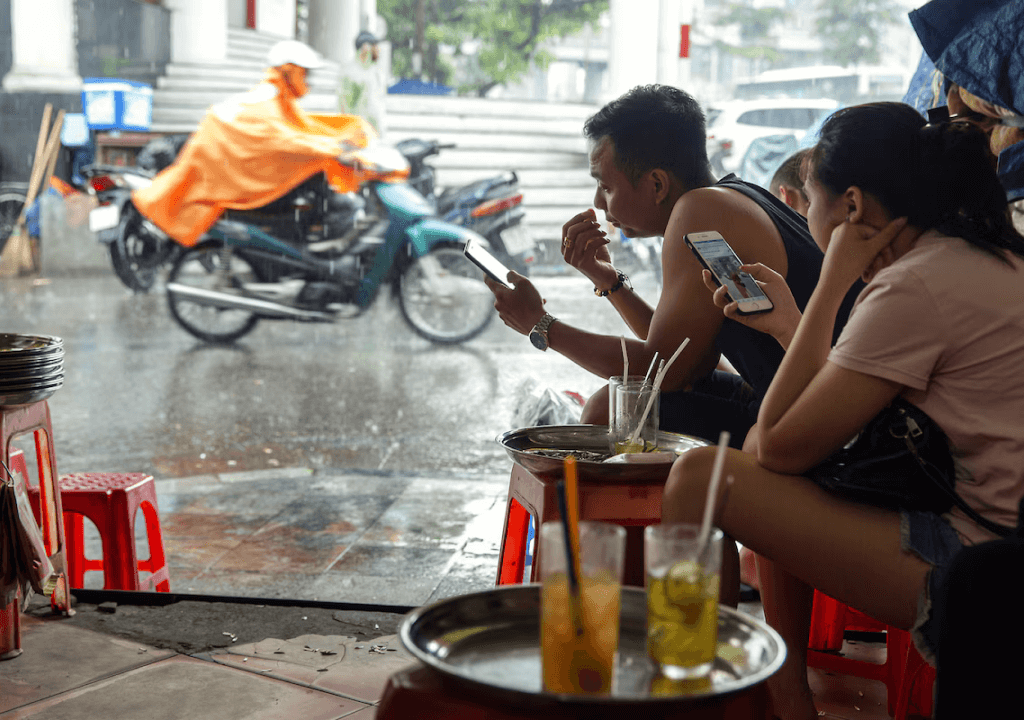At its core, communism seeks not only to shape society but also to command the very essence of human existence — from daily routines to private thoughts. The ideology thrives on pervasive control, and history provides a stark record of its manifestations. The Soviet Union and Cuba epitomized the authoritarian model of communist regimes, enforcing conformity through relentless oversight and suppression.
However, communist China has charted a unique path. While many contemporaneous communist states collapsed under the weight of popular dissent, China adapted by providing its people with what they desire while maintaining tighter governmental control. By intertwining its authoritarian governance with technological prowess, it has created a model where digital tools not only entertain but also enforce seamless and far-reaching control over its citizens. Through surveillance, censorship, and data collection, the government wields the internet as its most effective weapon.
Vietnam seems intent on following China’s lead. Historically seen as an iteration of Chinese communism, its government has sought to mirror China’s trade successes while upholding a communist structure. Now, with a new internet law set to take effect, Vietnam appears ready to tighten its grip. This legislation grants the government broad powers over internet services and their users, facilitating meticulous surveillance and censorship. By leveraging digital platforms as tools of authoritarian control, Vietnam is paving the way for a more intense model of communist governance — one in which dissent is quickly silenced and every digital footprint is monitored.
This is the perfect communism for the digital age: control, refined and perfected through the internet.
Social media users in Vietnam, including those on platforms like Facebook and TikTok, will be required to verify their identities under strict new internet regulations. The law, which took effect on Christmas Day, mandates tech companies operating in Vietnam to store user data, provide it to authorities upon request, and remove content deemed “Illegal” by the government within 24 hours. Known as Decree 147, the law builds on the controversial 2018 cybersecurity law, which drew sharp criticism from the U.S., EU, and advocates for internet freedom, who claimed it mirrors China’s repressive internet censorship model.
Under the new regulations, tech companies, along with all “Foreign Organizations, Enterprises, and Individuals,” must verify user accounts through phone numbers or Vietnamese identification numbers and store that information alongside users full names and dates of birth. They are required to provide this data to the Ministry of Information and Communications (MIC) or the Ministry of Public Security upon demand. Decree 147 significantly expands the government’s control over online access to information, citing concerns over “National Security” and “Social Order”. The law also obligates social media platforms to remove content deemed “Illegal” by authorities within 24 hours, further tightening state oversight of the internet.
Vietnam’s hardline government has a well-established record of swiftly silencing dissent and imprisoning critics, particularly those who gain prominence on social media. In October, blogger Duong Van Thai, who had nearly 120,000 followers on YouTube, where he frequently live streamed critiques of the government, was sentenced to 12 years in prison for publishing anti-state content. Months earlier, prominent independent journalist Huy Duc, known for his popular blog critical of the government on issues like media control and corruption, was arrested on charges that his posts “Violated the Interests of the State”.
Critics warn that Decree 147 will further expose dissidents—especially those posting anonymously—to the risk of arrest. Nguyen Hoang Vi, a blogger and rights activist based in Ho Chi Minh City, explained that many people work quietly but effectively in advancing universal human rights. She also cautioned that the new decree may encourage self-censorship, with people refraining from expressing dissenting views to safeguard their safety, ultimately stifling the development of democratic values in Vietnam.
Former political prisoner Le Anh Hung called it the latest sign of infringement on basic freedoms, noting the vague distinction between what is considered legal and what is not. She added that no one wants to go to jail, so some activists will undoubtedly become more cautious and fearful of this decree. In a chilling reminder of the government’s stance on dissent, Duong Van Thai’s October conviction underlines the escalating crackdown on those who challenge the state.
Le Quang Tu Do, from the Ministry of Information and Communications (MIC), told state media that Decree 147 would regulate behavior to maintain social order, national security, and sovereignty in cyberspace. The decree also stipulates that only verified accounts will be allowed to livestream, which could impact the growing number of people earning a living through social commerce on platforms like TikTok.
In addition to its impact on social media companies, the new laws impose restrictions on gaming for individuals under 18, aimed at curbing addiction. Game publishers are expected to enforce a time limit of one hour per session and a maximum of 180 minutes of gameplay per day. Do remarked that games are “Designed to be Addictive”, noting that players often spend hours engaged in continuous matches.
According to data from research firm Newzoo, just over half of Vietnam’s 100 million people regularly play such games. A significant portion of the population is also active on social media, with the MIC estimating around 65 million Facebook users, 60 million on YouTube, and 20 million on TikTok.
While many pro-communist individuals believe the law will help protect people from the addiction to social media and the influence of Western culture, many young people have noted that their time spent on social media and playing games has negatively affected their lives. The harmful consequences are drawing increasing attention as the government’s actions unfold. The country is experiencing a resurgence of communist ideologies, reinforced by sweeping government and authority-led initiatives, such as the widely praised anti-corruption drive. These measures, framed as necessary to safeguard the state from its enemies, reflect a growing shift toward controlling governance and suppressing dissent.








